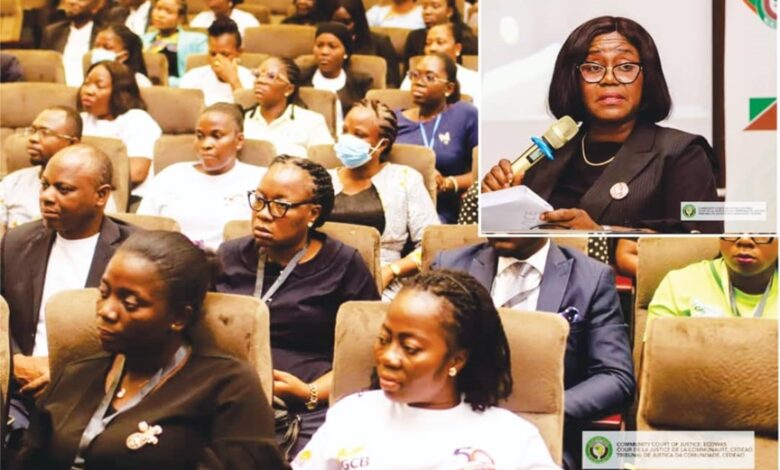Digitalization of Justice: ECOWAS Court trains lawyers on new Electronic Case Management System

The ECOWAS Court of Justice has commenced a week-long training programme in Accra to introduce its new Electronic Case Management System (ECMS) to lawyers from Anglophone member states.
The programme, which runs from June 14 to 19, 2024, aims to equip legal practitioners with the skills to navigate the Court’s innovative digital platform.
President of the ECOWAS Court of Justice, Justice Edward Amoako Asante, highlighted the Court’s efforts to enhance access to justice through digitalization, accelerated by the COVID-19 pandemic. The adoption of the 2020 Practice Directions on Electronic Case Management and Virtual Court Sessions marked a significant shift towards technological solutions.
The ECMS supports the electronic filing of legal documents, the automatic electronic service of documents and comprehensive electronic management of cases.
The system aims to make the Court more accessible and efficient, allowing lawyers to file documents, receive notifications, and attend virtual hearings via a secure web interface.
Her Ladyship Justice Gertrude Araba Esaaba Sackey Torkornoo who chaired the opening ceremony noted that technology had positively impacted justice delivery, enabling cost savings, increased efficiency, and reduced delays.
“Technology is affording us in justice delivery an opportunity to cut costs, to be more efficient and to avoid unnecessary delays in the administration of justice,” she stated.
The Chief Justice recalled that Ghana’s utilization of technology started with automation in 2004 and gained momentum with digitalization through the introduction of an e-justice platform in 2019.
She recalled the experience with the COVID-19 pandemic, noting that the pandemic had demonstrated not only the immense potential of digital tools and technologies, but also the need for them.
Chief Justice Torkornoo invited participants to engage the court’s IT teams in “seeing how we can co-learn from our different jurisdictions in addition to the knowledge that will be shared by the ECOWAS courts.
“I am aware that the deployment of technology for justice delivery has many complex connotations and leaders in the leveraging of digital tools have to remain constant learners of the dynamics of technology and human responses in their utilization,” she added.
She intimated that she was particularly delighted to learn that the ECOWAS Court of Justice had produced the electronic case management and filing system, which is designed to securely digitize the court’s procedures and guarantees speedy trial, accuracy of records, transparency, and fluidity in managing cases filed before the court.
Ghana’s Deputy Attorney General and Minister of Justice, Ms. Diana Asonaba Dapaah, emphasized the importance of the training programme in closing the knowledge gap between the Court and the public, facilitating a deeper comprehension of the Court’s role, mandate, and procedure.




